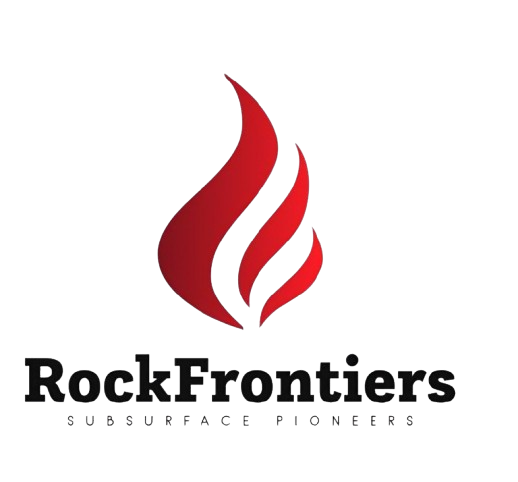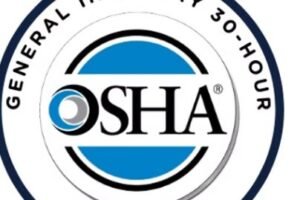Waterflooding and Reservoir Pressure Maintenance
Course Overview: This course provides comprehensive knowledge on waterflooding principles, design, surveillance, and optimization. Participants will learn how to implement and monitor water injection projects effectively to maintain pressure and enhance recovery in oil reservoirs. 📅 Day 1: Principles of …
Overview
Course Overview:
This course provides comprehensive knowledge on waterflooding principles, design, surveillance, and optimization. Participants will learn how to implement and monitor water injection projects effectively to maintain pressure and enhance recovery in oil reservoirs.
📅 Day 1: Principles of Waterflooding
-
09:00–09:45 – Introduction to secondary recovery and waterflooding
-
09:45–10:30 – Waterflood displacement mechanics (mobility ratio, sweep)
-
10:30–10:45 – ☕ Coffee Break
-
10:45–11:30 – Selection criteria for waterflood projects
-
11:30–12:15 – Water compatibility and formation damage risks
-
12:15–13:15 – 🍽️ Lunch Break
-
13:15–14:00 – Water source evaluation and treatment
-
14:00–14:45 – Group discussion: examples of early waterflood failures
-
14:45–15:00 – Recap and Q&A
📅 Day 2: Waterflood Design and Planning
-
09:00–09:45 – Injection patterns (five-spot, line-drive, staggered)
-
09:45–10:30 – Areal and vertical sweep efficiency
-
10:30–10:45 – ☕ Coffee Break
-
10:45–11:30 – Injection rate, pressure, and water quality requirements
-
11:30–12:15 – Reservoir heterogeneity and flood front control
-
12:15–13:15 – 🍽️ Lunch Break
-
13:15–14:00 – Group activity: design a five-spot waterflood
-
14:00–14:45 – Case study: sandstone waterflood project
-
14:45–15:00 – Recap and Q&A
📅 Day 3: Waterflood Surveillance and Performance Monitoring
-
09:00–09:45 – Monitoring tools: injectivity index, fall-off testing
-
09:45–10:30 – Tracer and interference tests
-
10:30–10:45 – ☕ Coffee Break
-
10:45–11:30 – Water cut trends and breakthrough detection
-
11:30–12:15 – Production allocation and flood front mapping
-
12:15–13:15 – 🍽️ Lunch Break
-
13:15–14:00 – Use of 4D seismic in waterflood surveillance
-
14:00–14:45 – Practical: evaluate waterflood response curves
-
14:45–15:00 – Recap and Q&A
📅 Day 4: Optimization and Troubleshooting
-
09:00–09:45 – Injection profile modification and conformance control
-
09:45–10:30 – Polymer and surfactant-assisted waterfloods
-
10:30–10:45 – ☕ Coffee Break
-
10:45–11:30 – Causes and mitigation of channeling and early breakthrough
-
11:30–12:15 – Economic aspects of waterflood projects
-
12:15–13:15 – 🍽️ Lunch Break
-
13:15–14:00 – Case study: offshore waterflood optimization
-
14:00–14:45 – Workshop: optimize an existing waterflood pattern
-
14:45–15:00 – Recap and Q&A
📅 Day 5: Integrated Field Examples and Project Simulation
-
09:00–09:45 – Case study 1: mature field under pressure maintenance
-
09:45–10:30 – Case study 2: high-permeability streak challenges
-
10:30–10:45 – ☕ Coffee Break
-
10:45–11:30 – Introduction to waterflood simulation models
-
11:30–12:15 – Sensitivity analysis and model calibration
-
12:15–13:15 – 🍽️ Lunch Break
-
13:15–14:00 – Team exercise: simulate and forecast a waterflood
-
14:00–14:45 – Final group presentations
-
14:45–15:00 – Wrap-up and course certification
Target audiences
- Reservoir Engineers, Geologists
You May Like
📘 Underbalanced Drilling (UBD) Techniques and Safety
🎯 Course Description: This intensive 5-day program focuses on Underbalanced Drilling (UBD) – an advanced technique used to drill wells where the hydrostatic pressure of the fluid is intentionally kept below formation pressure. Participants will learn how to implement UBD …
📘 IOSH Managing Safely
🎯 Course Description: A practical, 5-day program designed to help managers and supervisors learn how to manage safety and environmental responsibilities in their teams. Emphasis is placed on identifying risks, measuring performance, and leading safely using internationally recognized good practices. …
📘 IWCF Level 3 Well Control (Surface BOP)
🎯 Course Description: This is an intensive course aimed at drilling / well service personnel needing to gain supervisory competence in well control using surface blow‑out preventers (BOP) under the IWCF standard. It covers theory, hands‑on practice, and assessments for …
Advanced Specialist Petroleum GeoMechanics
📘 Course Description: This elite-level course is tailored for petroleum geomechanics specialists and senior subsurface professionals engaged in complex field development projects. It provides a deep technical dive into stress modeling, anisotropic rock behavior, coupled geomechanical-reservoir simulation, fault/fracture mechanics, and …
📘 OSHA 30‑Hour General Industry Safety and Health
🎯 Course Description: This 5‑day course provides in‐depth knowledge of workplace safety and health in general industry sectors. It covers OSHA regulations, hazard recognition, safety programs, and industry best practices. Participants will gain the expertise needed to maintain a safe …






